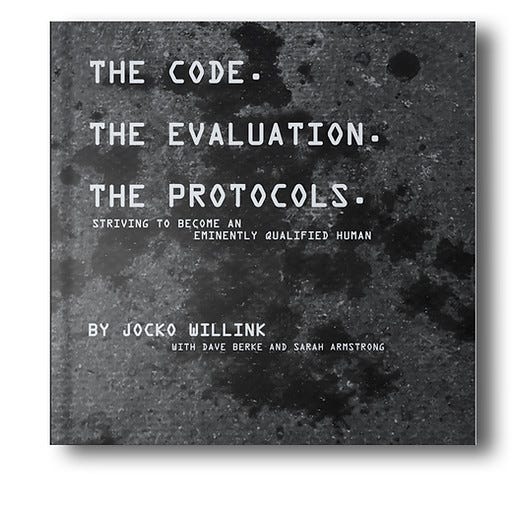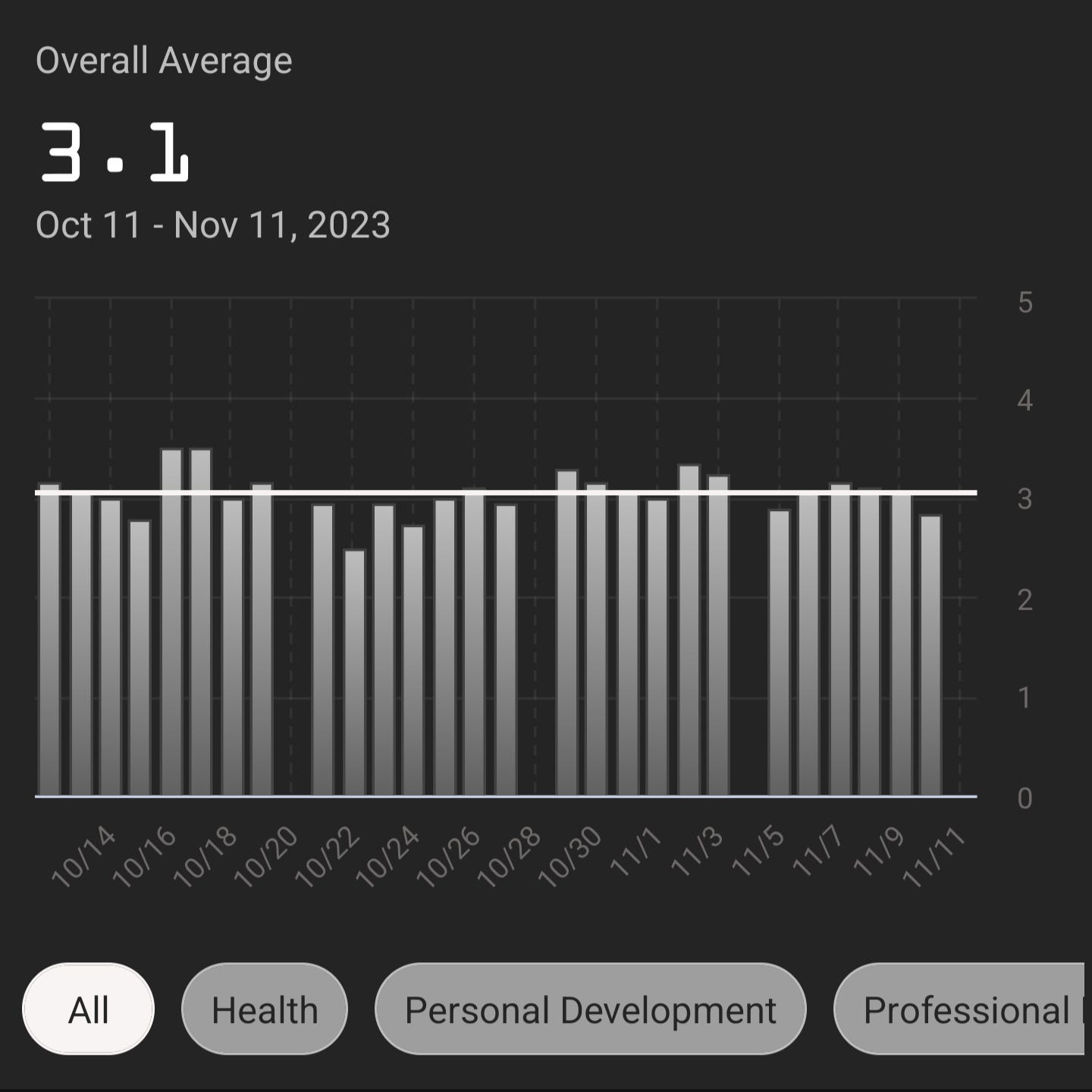Fitness apps and training plans are a dime a dozen and mostly worthless. The reason they are “free” is because you’re the product being sold (to advertisers). How does an app made by legendary Navy SEAL and leadership author, Jocko Wilink, stack up? Does it have inherent value, or is it selling you on hope and cheap dopamine like almost everything else?
Like most people, I’ve tried and tested all manner of training logs — apps, spreadsheets, notebooks, you name it. Recently, I’ve reverted back to a plain old pen and paper planner to log my day-to-day training. Monthly, I do still log PRs and noteworthy achievements in a spreadsheet.
It may be useful this week to flip back in my notebook and see last week’s loading so that I can plan today’s session, but 5-years from now I won’t care what the loading was on a random set on a random Tuesday a few years ago. It then becomes difficult to separate “signal from noise.” What I will care about 5-years from now is whether or not or which PRs, movements, and attributes I’ve been able to improve.
“How can you best strive to become an Eminently Qualified Human? How will you hold yourself to the highest possible standard in life? How do you become a better father, mother, husband, wife, son, daughter, public servant, role model, and leader? The answer: through Unmitigated Daily Discipline in all things. (ref.)”
Beyond physical training, I’ve used notebooks and whiteboards to track progress in different personal goals for the last several years as well. Those might be something like “read 12 books / year.”
However, the arbitrary number of books, hours of podcasts, or any other quantifiable metric, loses it’s value if there isn’t substance or connection to the content — e.g. blast through 10 audiobooks and not remember a single chapter, or read two books that impact your day every day going forward?
I’ve also been using the following journal prompt each day in my paper notebook:
Gratitude: (something you’re grateful for)
Win: (something big or small you achieved today or goal you moved towards)
Focus: (something you can do tomorrow to make the world or yourself better)
The EQH app itself is based on a self-evaluation of 6 main categories that have varying numbers of sub-categories you evaluate yourself on on a scale of 0 - 5:
Health
Personal
Professional
Character
Relationships
Preparedness
Similar to my journal prompt, the homepage of the app tells you (based on your most recent evaluation):
Your “Gains” (or “win”)
Your “Weakness” (or something to “focus on tomorrow”), and
Your “Strength.”
Some categories have more sub-scales than others. For example, there are 4 sub-scales for preparedness and personal development, but only 2 for professional development and relationships.
Personally, I’d like to see “relationships” include “spiritual” and “intimate” components in addition to “family” and “friends / co-workers.” However, the “personal goals" under “personal development” category can be interpreted quite broadly to incorporate these or any other adjustments / preferences.
Something I wondered about is if I should “back log” the abundance of time I’ve spent on fitness and martial arts to properly “weight” the results. I found that this isn’t really necessary because it is the time / effort being logged rather than an outcome — remember the spreadsheet vs. notebook discussion above?
With a monthly summary (above) you can get a pretty good idea of how you’re spending your time — or at least what you’ve been ignoring and what you’re already good at.
Day-to-day this may not be helpful, because we all know big projects may take anywhere from an entire day, to multiple days, to multiple weeks — think about work trainings and family vacations for example. If last week was “focus on family time” then maybe I didn’t get to the gym as much as I would have liked.
Similar to the physical training logged in my notebook, the past couple months I’ve logged my EQH summary as well to give me a guide as to what I should focus on “in my free time” during the coming month.
For the month of October my three biggest areas of need were:
Preparedness (2.3)
Relationships (2.8)
Professional (2.9)
Each category has examples of each tier of the 0-5 rating scale, but the general template that I use for myself is something like this:
0 - Did nothing.
Self explanatory. You didn’t even take time to think about the thing.
1 - Passive effort.
Basic minimal engagement — e.g. took the stairs, concealed carry, mental reps of scenarios, listening to podcast.
2 - Reactive effort.
More effort than thinking, but initiated externally — e.g. walked the dog, answered phone call from family, at-home mobility / martial arts drills.
3 - Proactive effort.
A typical “active” engaged or focused effort — e.g. making a home safety plan, researching job training / advancement opportunities, dedicated workout / training session, called your friend to check in.
4 - Significant effort / achievement.
Notable progress towards goal, an especially hard effort or deviation from the norm — e.g. any type of seminar or “retreat” (marriage, firearms training, sport “camp”, etc.), achievement in one area came at the (time) expense of other areas.
5 - Landmark achievement.
A rare performance or milestone achievement — e.g. PR in weight room, martial art or job promotion, met weight loss goal, attend friend’s birthday party or other celebration, actively used preparedness / survival skills in live environment (not necessarily life threatening).
In summary, the EQH app prompts you with a daily inventory to evaluate your daily life on 6 different axes. Of course, there are links to videos and podcasts to help develop these traits, but a diligent disciple would be able to seek these out on their own.
No one measure or it’s metrics are going to be perfect, but this app gives you a pretty good perspective, in my opinion, of what you’re spent the most time on and what you’ve been neglecting.
Most importantly, it emphasizes a point I’ve been trying to make recurrently throughout the year; that “health” is so much more than food or fitness by themselves, even combined, and reaches far beyond the drama that sells so well on social media.
#thinkdifferently











